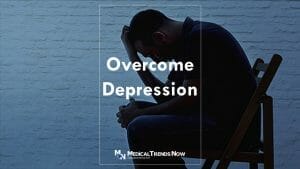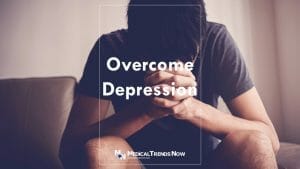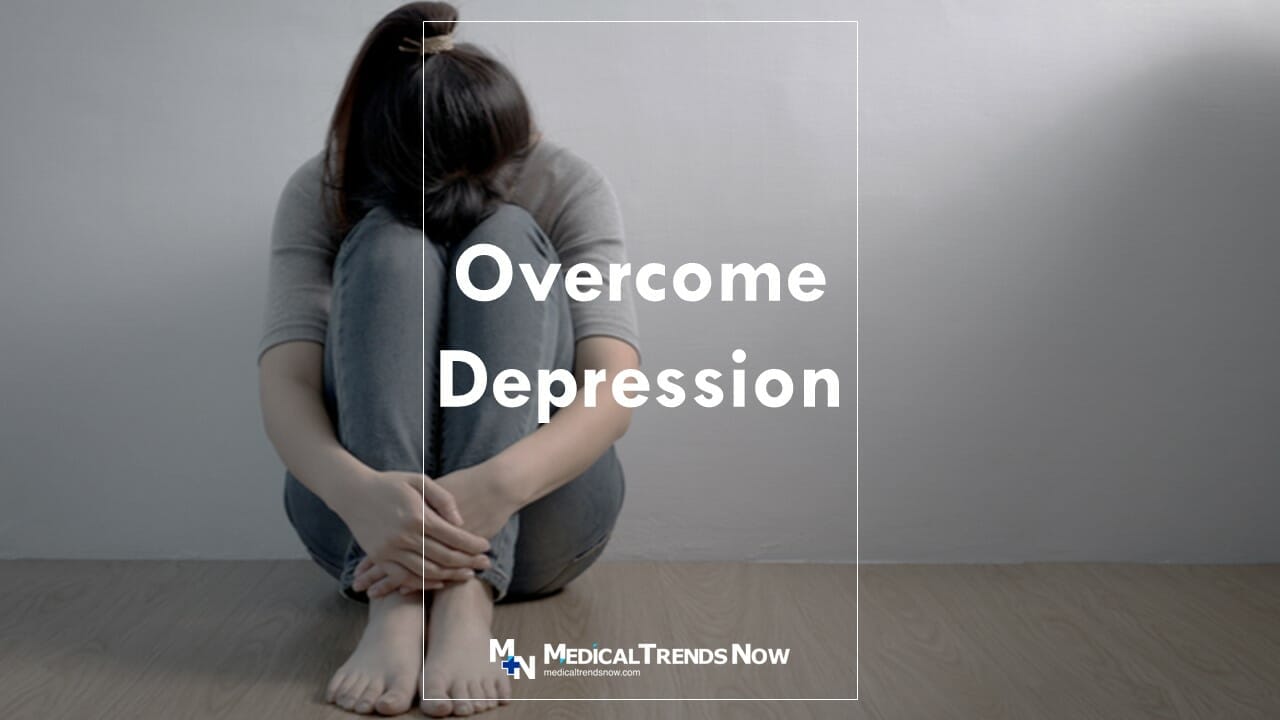Table of Contents
Are you struggling with depression? It can be tough to manage your thoughts and emotions, but you’re not alone. Check out our tips on how to overcome depression for Filipinos.
Thousands of Filipinos and perhaps millions of people worldwide are affected by depression, a serious and occasionally life-threatening mental disorder. Most Filipinos do not know how to overcome depression, and the result in their health is devastatingly painful, both physically and mentally. It might be challenging to identify the precise actions you should take to help someone who is depressed or even to help yourself out if you are experiencing despair.
There are numerous efficient methods to help you control your thoughts and emotions, even while there is no one-size-fits-all approach to treating depression. We’ll talk about some of the most typical signs of depression in this article, along with some advice on how to support someone who is going through it.

I. Understand Depression
Filipinos must understand so they know how to overcome depression.
What is Depression?
Depression is a mental illness that causes feelings of sadness, hopelessness, and low mood. It can be a very disabling condition and can significantly impact daily life.
Genetics may play a part in the development of depression, as may environmental factors (like stressors at work or in your personal life). Poor mental health care can also trigger episodes of depression.
There are many different types of depression, and they can vary in terms of their severity. Generally speaking, there are three stages of grief: denial, anger, and bargaining. The first two stages tend to be the most common, while the third stage is less common.

Types of Depression
Filipinos must understand the types, so they know how to overcome depression. Severe cases of depression may be characterized in different forms. Being aware of these types could make this condition acceptable and understandable prior to administering help mechanisms.
Generally, types of depression are:
1. Major depressive disorder
This is the most common type of depression, and it affects about 5.3% of the population in the Philippines at some point in their life. It’s characterized by a prolonged period of low mood, which can affect all aspects of your life.
2. Dysthymia
This is a milder form of depression, and it affects about 50% of the population in the Philippines at some point in their life. Dysthymia usually lasts for 2 years or more.
3. Bipolar disorder
Bipolar disorder is a serious mental illness that affects about 1.1% of the population in the Philippines. Filipinos with bipolar disorder have periods of high mood (mania) and periods of low mood (depression).
4. Seasonal affective disorder (SAD)
SAD is a disorder that affects about 1% to 10% of the population in the Philippines. Filipinos with SAD have depressive episodes during the winter months.
5. Post-traumatic stress disorder (PTSD)
PTSD is a condition that affects about 3% of the population in the Philippines. Filipinos with PTSD have intrusive memories and nightmares that follow a traumatic event, such as a car accident or military deployment.
6. Social anxiety disorder
Social anxiety disorder is a condition that affects about 10.5% of the population in the Philippines. Filipinos with social anxiety disorder have recurrent fears of being embarrassed or rejected in social situations.
7. Obsessive-compulsive disorder (OCD)
OCD is a mental illness that affects about 1% of the population in the Philippines. Filipinos with OCD have recurrent thoughts or urges that are intrusive and cause significant distress.

Symptoms Of Depression
Filipinos must understand the symptoms so they know how to overcome depression. Depression is a disorder that affects your mood and thoughts.
Symptoms of depression can vary from person to person, but most Filipinos experience at least one of the following:
- Feeling low energy and tired all the time
- Trouble concentrating or making decisions
- Feeling irritable, angry, or out of control
- Loss of interest in activities he/she used to enjoy
- Persistent sadness or emptiness
- Weight gain or loss, even if not eating too much
- Insomnia or excessive sleeping
II. Deal with Depression
Filipinos must deal with it so they know how to overcome depression. Dealing with depression and/or having depressive phases are one of the most difficult moments in one’s life. However, one may still succeed in creating light out of the darkness he or she may be in by sailing with it.

Tips for Managing Depressive Phases
Talk about it. Talking about how you’re feeling can help relieve some of the distress and guilt that may be associated with your depression. It can also help others understand and support you during this difficult time.
Get plenty of exercises.
Exercise has been shown to improve mood, energy levels, and sleep quality. And who doesn’t want to feel better all around?
Set boundaries.
Letting yourself have some healthy limits can be very helpful in managing depressive phases. This includes setting boundaries with food, social activities, and work/study commitments. Not everything needs to be done all at once; instead, find what feels comfortable for you at this particular time.
Take care of yourself physically and emotionally.
Taking care of your physical health includes eating a balanced diet and getting enough exercise. Taking care of your emotional health includes making time for self-care, such as relaxing activities or spending time with loved ones.
Eliminate stressors.
It’s important to eliminate any sources of stress in your life so that you don’t feel overwhelmed by the depressive phase. This may include adjusting your schedule, setting boundaries with certain Filipinos or responsibilities, and finding ways to cope with stress physically or emotionally.
Get professional help.
If you find that you’re struggling to manage your depression on your own, consider seeking professional help. A psychiatrist can provide you with support and guidance during this difficult time.

The Importance Of Getting Counseling
If you’re feeling depressed, there’s no shame in seeking professional help. In fact, it could be the best thing for your health and well-being. If you’re not sure whether counseling is the right step for you, here are some things to consider:
Depression can be disabling.
It can make it difficult to function at work, school, or home and can even lead to suicide.
Depression is often treatable.
If left untreated, depression will usually get worse over time, but it can also be successfully treated with medication and/or therapy.
Counseling is not a quick fix.
While counseling may improve your symptoms over time, it won’t cure your depression overnight – treatment may take weeks or even months to have an effect.
Counseling is not a costly option.
Many mental health clinics offer sliding scale fees, which means that you can cover the cost of counseling with your income.
If you’re feeling depressed, please don’t hesitate to reach out for help. There are many resources available to help you get started.

III. Reach Out
Helping and advising others who are struggling with depression in the best ways possible can already have a positive impact on their mental health. There are many different ways to support others who are experiencing depression, and these methods vary from person to person. However, simple and effective methods are also advised if you know someone who is experiencing this.
Helping Someone With Depression
When you’re depressed, it can feel like you’re stuck in quicksand. No matter how much you want to move forward, everything feels impossible. But it’s not. Depression is a real illness with real solutions.
If you suspect that someone you care about is struggling with depression, here are some things you can do to help:
- Offer your support. This can be the most important thing that you do for someone who is struggling with depression. Simply being there for them can provide comfort and help them to feel less alone.
- Listen to their thoughts and feelings. If the person is willing to share them, listen carefully and don’t rush them to finish the story or make any decisions. Simply let them know that you’re there for them, no matter what.
- Encourage the person to seek professional help if needed. While many Filipinos find relief from depression on their own, professional help may be necessary in order to reach a full recovery.
- Offer resources and support groups if the person is interested in exploring these options further. There are numerous groups available that can provide support and guidance to those who are struggling.

Ways To Support A Filipino Who Is Depressed
If you are in a relationship with someone or you know a Filipino who suffers from depression, it can be difficult to know how to show your support. Here are some tips on how you can help your partner through their depression:
- Listen attentively without judgments.
- Offer support through words and actions, whether that means making them a cup of tea, taking them for a walk, or just being there for them.
- Encourage them to talk about their feelings, even if it’s difficult.
- Let them know they are not alone in their feelings and that there are Filipinos who care about them.
- Do not hesitate to ask for help if you feel like you’re struggling too. There are plenty of resources available to help you and your loved one get through this tough time.

IV. Filipinos Must Live a Better Life By Managing Their Thoughts and Emotions
It is no secret that our thoughts and emotions influence our lives. They can either lead us to success or failure, happiness or misery. It is, therefore, important that we learn how to manage them effectively in order to live better lives.
One of the most important things we can do is learn how to control our thoughts. This means not letting negative thoughts take over and instead focusing on positive ones. This can be easier said than done, but it is crucial if we want to overcome depression and live happier lives.
Another important thing to do is to manage our emotions. This means not letting them get the best of us and instead dealing with them in a healthy way. We need to express our emotions in a constructive way, whether it be through writing, painting, talking to someone, or any other outlet that works for us.
Here are some of the ways for Filipinos to live a better life by managing their thoughts and emotions:
- Take care of yourself. When you’re feeling down, it’s easy to let your thoughts take over. Make sure to schedule in time for activities that make you happy and help to reduce stress in your life.
- Practice positive self-talk. When you’re upset, it’s easy to dwell on the negative aspects of your situation. Instead, try to focus on the things that are positive. Start by saying to yourself, “I can handle this,” or “This will all work out in the end.”
- Exercise regularly. Exercise has been shown to help manage stress and anxiety levels, as well as improve moods overall. Consider incorporating a workout routine into your daily routine if possible.
- Connect with friends and family members. sharing your feelings with others can be a great way to feel less alone and cope with depression in a healthy way.
- Keep a journal. Write down your thoughts and feelings so that you can reflect on them later and understand them better.
- Do things that make you happy, even if they’re small gestures like taking a leisurely walk or spending time with friends.
- Be kind to yourself, even when things seem tough overall.

Takeaway: How To Overcome Depression
In conclusion, if you are struggling with depression, know that you are not alone. The first step is to seek help from a professional. Once you have a diagnosis, you and your therapist can work on a treatment plan. If you have depression, there are ways to manage your thoughts and emotions. You can get better with treatment.
There are many resources and Filipinos who care about you and want to help. You can overcome this difficult time with effort, patience, and perseverance.
These are a few tips that you can use for yourself or help someone with depression. If you have any other tips, please let us know in the comments below!
Sources: How To Overcome Depression
- Depression – American Psychological Association
- How to cope with depression – NHS
- 7 Ways to Overcome Depression Without Medication – Intermountain Healthcare
- Overcoming depression: How psychologists help with depressive disorders – American Psychological Association
- How To Deal With Depression and Sadness | THIS WAY UP
- How to deal with depression | 10 tips to instantly change your life – Tony Robbins
- How To Overcome Depression? 12 Tips To Overcome Depression – Dr. Neha Mehta
- Steps You Can Take to Overcome Depression – Fort Behavioral Health
- What Is Depression? – Psychiatry.org
- Overcoming Depression Workbook: 44 Therapeutic Activities to Bring Happiness and Fulfillment Back into Your Life (PDF version) – Lawrence E. Shapiro, Ph.D.
- Depression (major depressive disorder) – Mayo Clinic
- Tara’s experience of opening up to a friend to overcome depression – ReachOut Australia
- Depression – NIMH
- Depression – World Health Organization (WHO)
- Depression explained – Better Health Channel
- Depression: Types, Symptoms, Causes & Treatment – Cleveland Clinic
- Depression Symptoms and Warning Signs – HelpGuide.org
- Symptoms – Clinical depression – NHS
- What are the signs and symptoms of depression? – Rethink Mental Illness
- Signs and symptoms of depression – Beyond Blue
- Depression signs and symptoms – Mind UK
- Treatment – Clinical depression – NHS
- Depression – treatment and management – Better Health
- What are the treatments for depression? – Australia Department of Health
- Depression – symptoms, causes and treatment | NHS inform
- Depression Treatment and Management – American Psychological Association (ADAA)
- Depression treatment information – Black Dog Institute
- Posttraumatic stress disorder symptoms among trauma-exposed adolescents from low- and middle-income countries – BMC
- Post-traumatic stress disorder (PTSD) among Filipino boys subjected to non-therapeutic ritual or medical surgical procedures: A retrospective cohort study – PubMed Central
- What to do if you have Seasonal Affective Disorder – CNN Philippines
- At least 3.6 million Filipinos battling mental health issues amid pandemic: DOH via ABS CBN
- ‘Disinfecting until it hurts:’ OCD cases rise as COVID-19 lingers – ABS CBN
- Depressive Disorders: How may suffer in the Philippines – Department of Health

Disclaimer
This website is intended to educate both members of the general public and those working in the medical field on the prevalence, causes, and methods for preventing, diagnosing, and treating diseases that affect people throughout their lives. This website’s content is provided solely for informational reasons and is not meant to serve as a substitute for the advice of a qualified medical practitioner.













